Whole Numbers
Whole numbers are the numbers 0, 1, 2, 3, 4, and so on. They do not include fractions or decimals. Whole numbers are used for counting and representing quantities. Understanding whole numbers is essential in many areas of mathematics.
Properties of Whole Numbers
Whole numbers have several important properties:
- Closure: When you add, subtract, or multiply two whole numbers, the result is also a whole number.
- Commutative Property: The order of numbers does not affect the result of addition or multiplication. For example, 3 + 5 is the same as 5 + 3.
- Associative Property: When adding or multiplying three or more whole numbers, the grouping of the numbers does not affect the result. For example, (2 + 4) + 6 is the same as 2 + (4 + 6).
- Identity Property: The sum of any whole number and 0 is the number itself. The product of any whole number and 1 is the number itself.
Operations with Whole Numbers
There are four basic operations that can be performed with whole numbers:
- Addition: Combining two or more whole numbers to find the total.
- Subtraction: Finding the difference between two whole numbers.
- Multiplication: Repeated addition of a whole number. For example, 3 × 4 means adding 3 to itself 4 times.
- Division: Sharing a quantity into equal parts. For example, 12 ÷ 3 means finding how many times 3 can be subtracted from 12.
Study Guide
To master whole numbers, it's important to practice the following skills:
- Identifying and writing whole numbers.
- Ordering whole numbers from least to greatest and vice versa.
- Performing addition, subtraction, multiplication, and division of whole numbers.
- Understanding the properties of whole numbers and how they apply to the operations.
Remember to use manipulatives, such as number lines, base-10 blocks, or counters, to help visualize and understand the concepts of whole numbers.
.◂Math Worksheets and Study Guides Fifth Grade. Ratio
Study Guide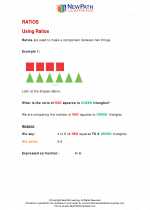 Ratio
Ratio  Activity Lesson
Activity Lesson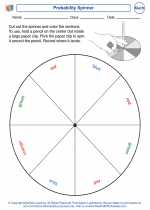 Probability Spinner
Probability Spinner  Activity Lesson
Activity Lesson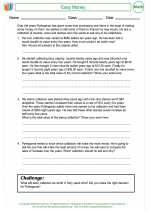 Easy Money
Easy Money  Worksheet/Answer key
Worksheet/Answer key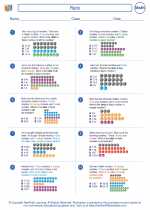 Ratio
Ratio  Worksheet/Answer key
Worksheet/Answer key Ratio
Ratio  Worksheet/Answer key
Worksheet/Answer key Ratio
Ratio  Worksheet/Answer key
Worksheet/Answer key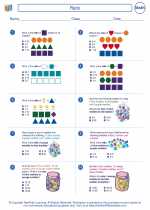 Ratio
Ratio  Worksheet/Answer key
Worksheet/Answer key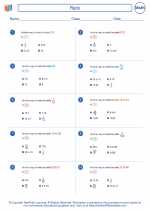 Ratio
Ratio  Worksheet/Answer key
Worksheet/Answer key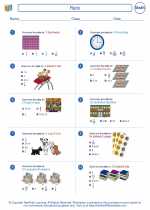 Ratio
Ratio  Worksheet/Answer key
Worksheet/Answer key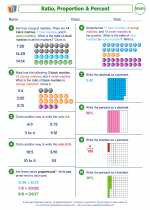 Ratio, Proportions and Percent
Ratio, Proportions and Percent  Worksheet/Answer key
Worksheet/Answer key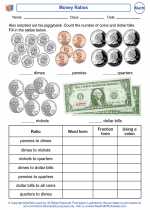 Money Ratios
Money Ratios  Worksheet/Answer key
Worksheet/Answer key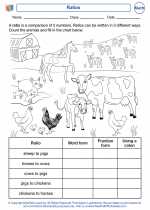 Animal Ratios
Animal Ratios  Vocabulary/Answer key
Vocabulary/Answer key Ratio
Ratio 

 Activity Lesson
Activity Lesson
 Activity Lesson
Activity Lesson
 Worksheet/Answer key
Worksheet/Answer key
 Worksheet/Answer key
Worksheet/Answer key
 Worksheet/Answer key
Worksheet/Answer key
 Worksheet/Answer key
Worksheet/Answer key
 Worksheet/Answer key
Worksheet/Answer key
 Worksheet/Answer key
Worksheet/Answer key
 Worksheet/Answer key
Worksheet/Answer key
 Worksheet/Answer key
Worksheet/Answer key
 Worksheet/Answer key
Worksheet/Answer key
 Vocabulary/Answer key
Vocabulary/Answer key

The resources above cover the following skills:
Algebra (NCTM)
Use mathematical models to represent and understand quantitative relationships.
Model problem situations with objects and use representations such as graphs, tables, and equations to draw conclusions.